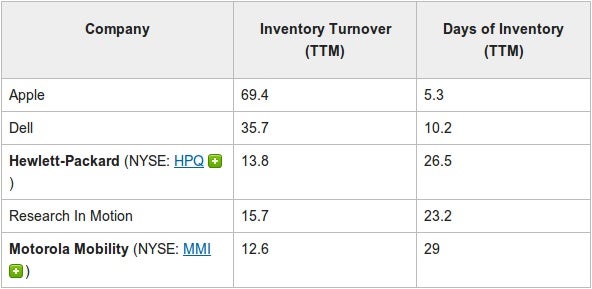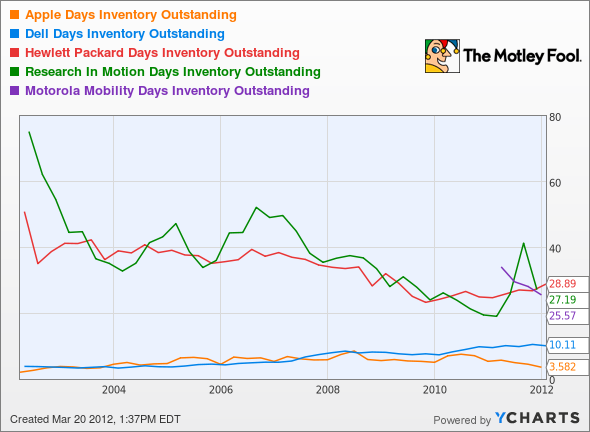Apple's secret sauce for success is inventory management

There are a couple of things making a successful phone maker the world’s largest company in market cap and if we knew them all we’d be starting our own company, but one of the most universal lessons one can draw from Apple’s success is that inventory management is very, very important.
And despite Apple having this aura of innovation it deserved with the iPhone and the iPad, and despite Steve Jobs being widely perceived as a product guy and design maximalist, he did not appoint a techie or a designer to manage Apple. He appointed Apple’s most disciplined inventory manager, former Chief Operating Officer, Tim Cook. And this alone is telling.
Cook’s career with Apple starts almost at the same time when Steve Jobs re-entered the company after winding up NeXT. At the time, Apple distribution was a mess. What’s not often mentioned is that Tim Cook transformed this model. He did away with Apple’s own manufacturing and opted for contract manufacturers, and led distribution with his “inventory is evil” view.
He has mentioned that inventory deprecates very, very quickly, comparing the way it loses value to the way milk goes bad in a couple of days. Cook has mentioned estimates that inventory loses 1% to 2% of its value each week under standard conditions.
This vision is what has allowed Apple to fully harvest its technological breakthroughs. 37 million iPhones sold in Q4 2011 shows incredible inventory management. And while previously Dell was the front-runner of a build-to-order model, Apple is currently clearly the market leader when it comes to the way it runs inventory.



Apple is incredibly efficient in managing inventory.
source: Motley Fool


![T-Mobile is phasing out plans with included taxes and fees starting tomorrow [UPDATED]](https://m-cdn.phonearena.com/images/article/169988-wide-two_500/T-Mobile-is-phasing-out-plans-with-included-taxes-and-fees-starting-tomorrow-UPDATED.jpg)








Things that are NOT allowed: